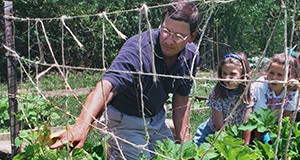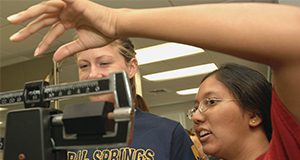Obesity is called an epidemic because there is a high rate of obesity in the United States. In fact, over 30% of all US adults were obese as of 2012, and more than two-thirds are either overweight or obese. This is concerning because excess body fat is linked to poor health and chronic diseases, such as diabetes and heart disease. The amount of excess body fat a person has is commonly sorted into weight status categories using Body Mass Index. This three-page fact sheet describes the body mass index and how to calculate it. Written by Kohrine A. Counts and Anne E. Mathews and published by the Food Science and Human Nutrition Department.
http://edis.ifas.ufl.edu/fs284
Tag: Kohrine Counts
School Gardens: A Growing Part of Schools

School gardens have been popping up like little pea plants in schools all over Florida. Not only are they an excellent way to get fresh produce into classrooms and cafeterias, but they also provide students with a living classroom where concepts related to science, math, agriculture, and nutrition can be learned and applied. This 4-page fact sheet discusses the benefits of school gardens to children and teachers, different types of school gardens, and points to consider while planning. Written by Kohrine Counts and Karla P. Shelnutt, and published by the UF Department of Family, Youth and Community Sciences, February 2016.
http://edis.ifas.ufl.edu/fy1463
